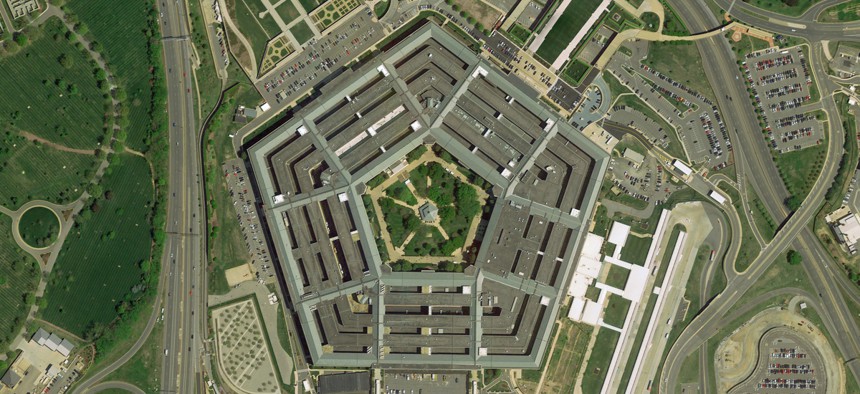Pentagon Teams with Howard University to Steer Artificial Intelligence Center of Excellence

gokturk_06/Shutterstock
The work will hone in on military-centered machine learning application development, research into trustworthy AI tech—and could help boost DOD’s talent pipeline.
The Defense Department, Army and Howard University linked up to collectively push forward artificial intelligence and machine learning-rooted research, technologies and applications through a recently unveiled center of excellence.
Work it will underpin will “shape the future,” according to an announcement Monday from the Army Research Laboratory—and the $7.5 million center also marks a move by the Pentagon to help expand its pipeline for future personnel.
“Diversity of science and diversity of the future [science and technology] talent base go hand-in-hand in this new and exciting partnership,” Dr. Brian Sadler, Army senior research scientist for intelligent systems said. Tapped to manage the partnership, Sadler added that Howard University is “an intellectual center for the nation.”
Encompassing 13 schools and colleges, the institution is a private, historically Black research university that was founded in 1867. Fulbright recipients, Rhodes scholars and other notable experts were educated at Howard, which also produces more on-campus African-American Ph.D. recipients than any other in America, the release noted. In early 2020, the Army’s Combat Capabilities Development Command previously partnered with the university, to support “science, technology, engineering, and mathematics [or STEM] educational assistance and advancement” among underrepresented groups.
Computer Science Prof. Danda Rawat, who also serves as director of Howard’s Data Science & Cybersecurity Center will lead the CoE, and the program’s execution will be managed by the Army Research Laboratory, or ARL.
“This center of excellence is a big win for the Army and [Defense Department] on many fronts,” Sadler said. “The research is directly aligned with Army priorities and will address pressing problems in both developing and applying AI tools and techniques in several key applications.
A kickoff meeting was set for mid-November, to jumpstart the research and work. ARL’s release said the effort will “explore vital civilian applications and multi-domain military operations” spanning three specific areas of focus: key AI applications for Defense, technological foundation for trustworthy AI technologies, and infrastructure for AI research and development.
U.S. graduate students and early-career research faculty with expertise in STEM fields will gain fellowship and scholarship opportunities through the laboratory, and the government and academic partners also intend to collaborate on research and publications, mentoring, internships, workshops and seminars. Educational training and research exchange visits at both the lab and school will also be offered.
An ARL spokesperson told Nextgov Tuesday that officials involved expect to share program updates after the new year.






